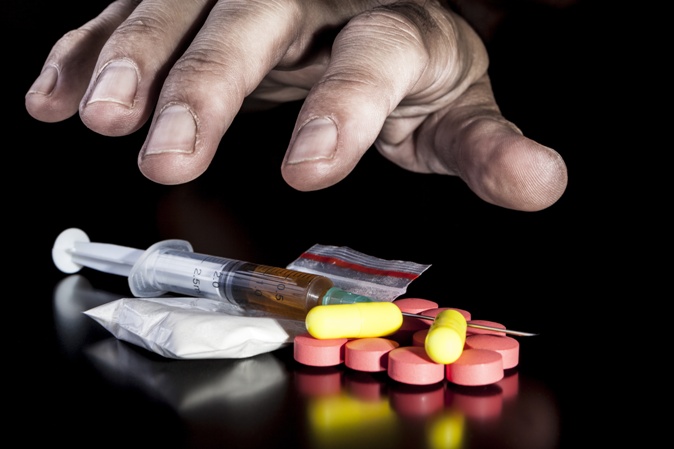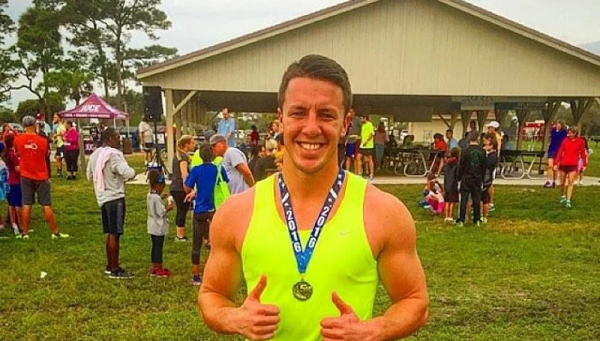Addiction
Best Ways to Fight Temptation for Drug Addicts
by Ben Emerling
Buried deep down in the subconscious of an addict is a voice saying “Go for it. It will be different this time.” My favorite analogy for that “voice” is a metaphor I’ve heard in AA. The saying goes, “While you are in a meeting, your addiction is doing pushups in the parking lot.” This is virtually saying, whether you know it or not, your addict brain is getting stronger and stronger.
Temptation is everywhere for someone trying to recover from addiction. So, what are some techniques to make your sobriety stronger, more incisive? How do you really cut out temptation? While your disease is doing pushups, it’s important to make sure the addictive brain is hitting the weight room even harder. Fighting temptation is important—in fact, it is vital for an addict’s sobriety.
Here is a list of actions one can take in order to squash all temptation.
Play the Tape All the Way Through
This might be one of those super simple clichés that nobody likes to hear, but it is very helpful for me. For an addict or alcoholic, it is easy to say, “I can only do one.” Of course, this is the disease talking to them, because everyone knows a drug addict or alcoholic can’t have “just one.”
This concept of playing the tape all the way through comes in handy in this situation. When I used to get fidgety early on in my sobriety I would hear this saying all the time. As an addict, it is easy to remember all the good times we had while using. At the same time, it’s fairly difficult to remember the deep, dark and morbid times of addiction. Many of these dark memories of using are buried deep down. But it is important to recall them in times like this.
While it’s easy to romanticize all the great times we had while drinking, playing the tape all the way through refers to thinking about all of the negative consequences before we pick up again. So it’s another way of saying, “think before doing.” Think of your life as a movie: when the thought of relapse comes to mind, rewind that film backwards and try and recall a moment where you were experiencing a terrible consequence because of using.
Get Lots of Numbers
Many addicts and alcoholics try to get sober alone. Although sobriety can be obtained with no help, the statistics are not in your favor. There were many times in my life where I swore off all 12-step programs and refused help of any sort because I thought I could do it alone. Even though I felt committed to sobriety and was 100% serious about it, I relapsed every time. Being left with my own devices, I fail each time.
It is a common stigma in our society that asking for help is a sign of weakness. This is a shame because I look at it the opposite way. Asking for help is a sign of strength. Early sobriety is one of the hardest obstacles any addict will come across. Everything is painful, “triggers” are everywhere, you are always on edge and you have to deal with yourself for the first time in likely manyyears. Receiving help from someone in AA/NA or any 12-step meeting is one of the best suggestions I can make.
My first year of sobriety I went to on average two meetings a day and constantly got phone numbers from people who were recovering. This helped because it gave me accountability. Picking up the phone rather than picking up my favorite drug was a great tool in learning to maintain my sobriety.
Work a 12-Step Program
This suggestion may be off-putting to many, but I feel it is the best one on this list. I can only speak for myself, but I can say the 12 steps saved my life. When I met with my sponsor for the first time, he told me, if you want what I have (sobriety), then this is what you do. See, the beautiful thing about a 12 step program is that it is all merely suggestions. It isn’t perfect science and not one person works an impeccable program. I do know that it takes hard work and dedication.
The 12-step model is the best substance abuse treatment plan I have ever completed and it brought me serenity. The one thing I never had. The temptation, desire and obsession to get high dissipated with time while actively working these steps. This was a miracle, because from the age of 13 after getting high for the first time, I was constantly obsessed with getting high. I got high all the time even when I didn’t want to. Getting intoxicated was the only thing on my mind for many years. So when, I worked these steps and the obsession finally disappeared, it was the greatest gift I have ever received. And since I keep going to meetings and am always working the steps, by the grace of God, that obsession has never returned. My sobriety date is April 21st 2010.
About the Author
Ben Emerling is a content writer who works in the Metro Detroit area. Creative writer by day and avid adventurist by night, he dedicates his life to helping people achieve sobriety. Ben currently works for www.monarchshores.com.





